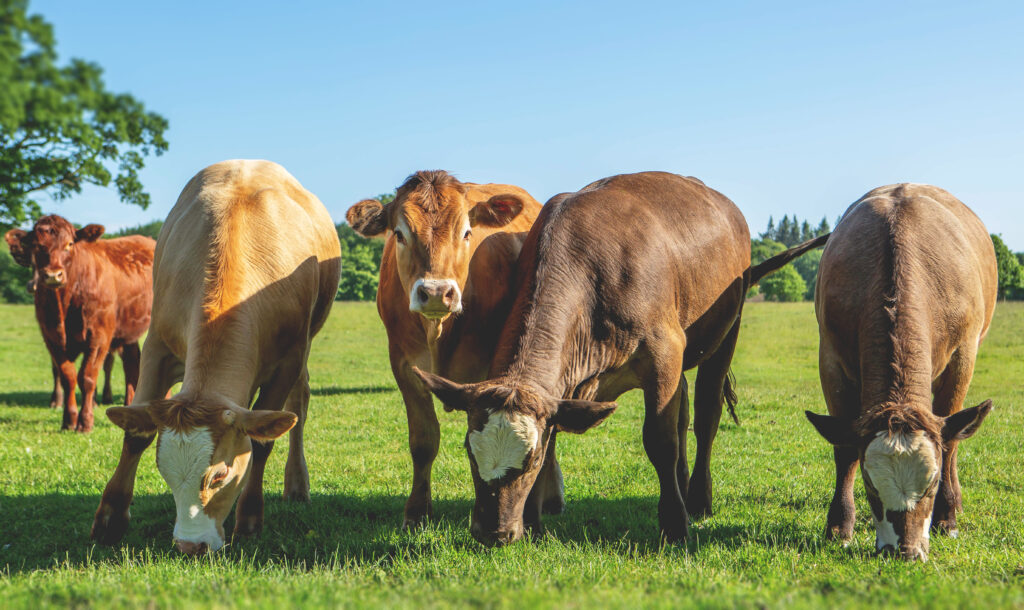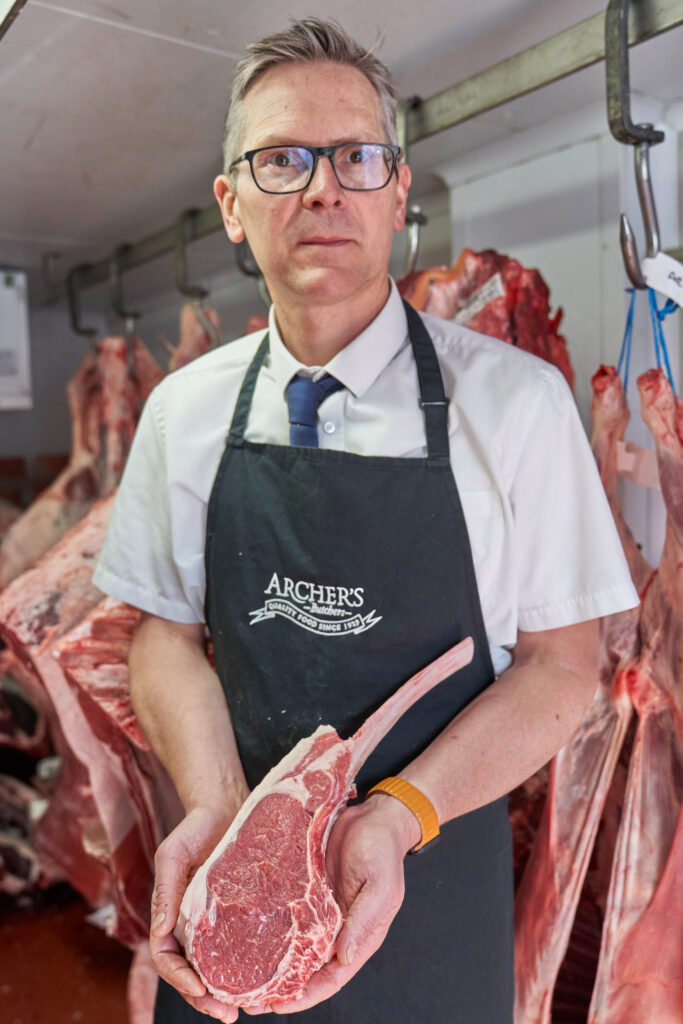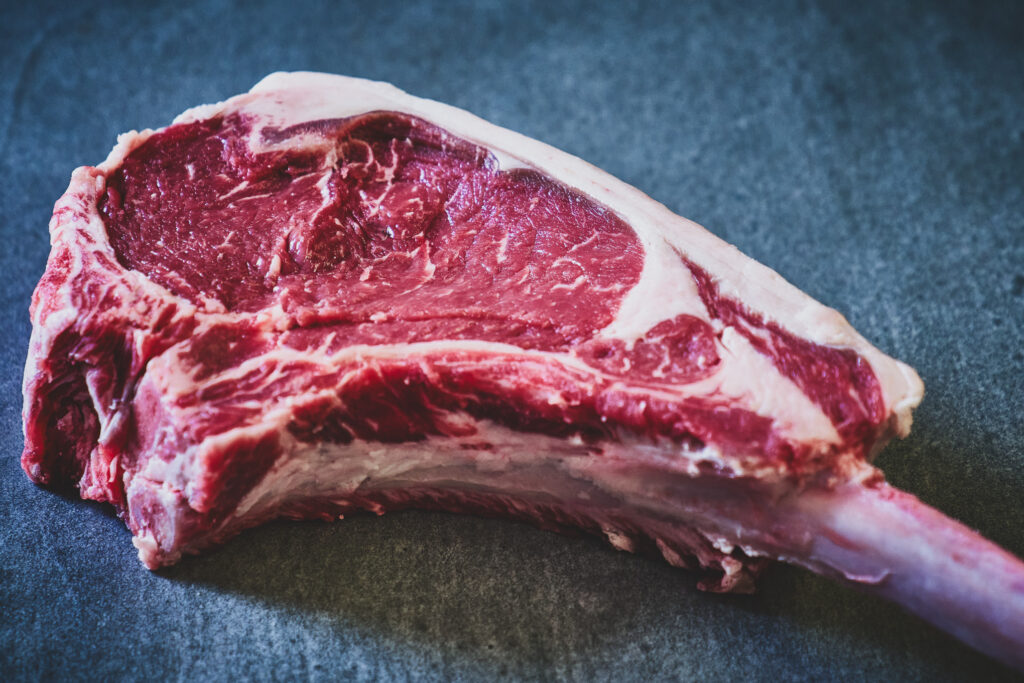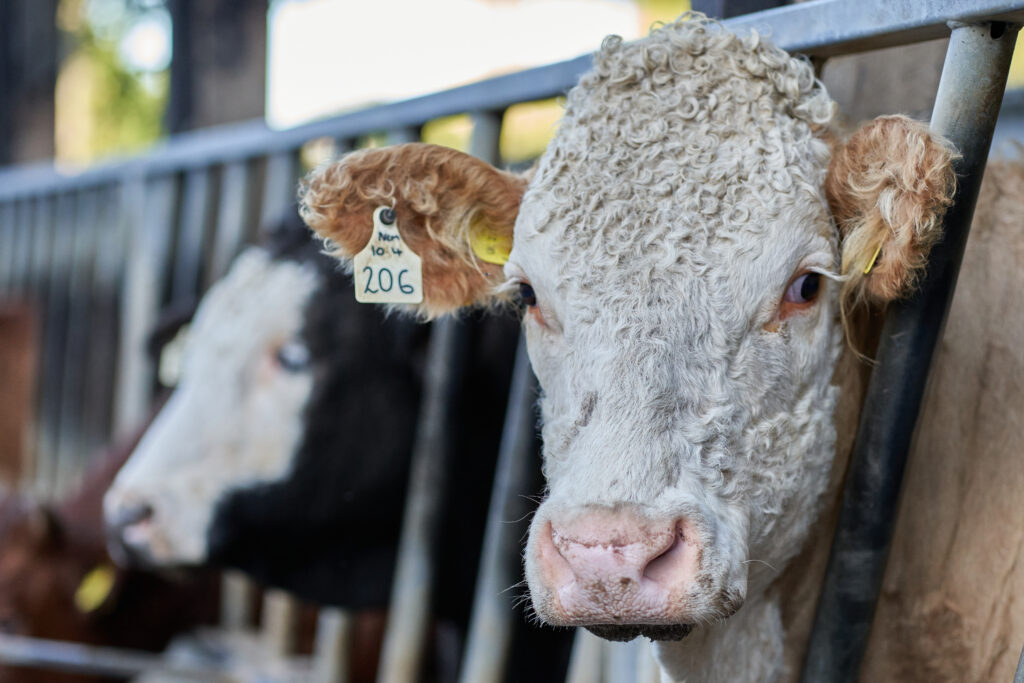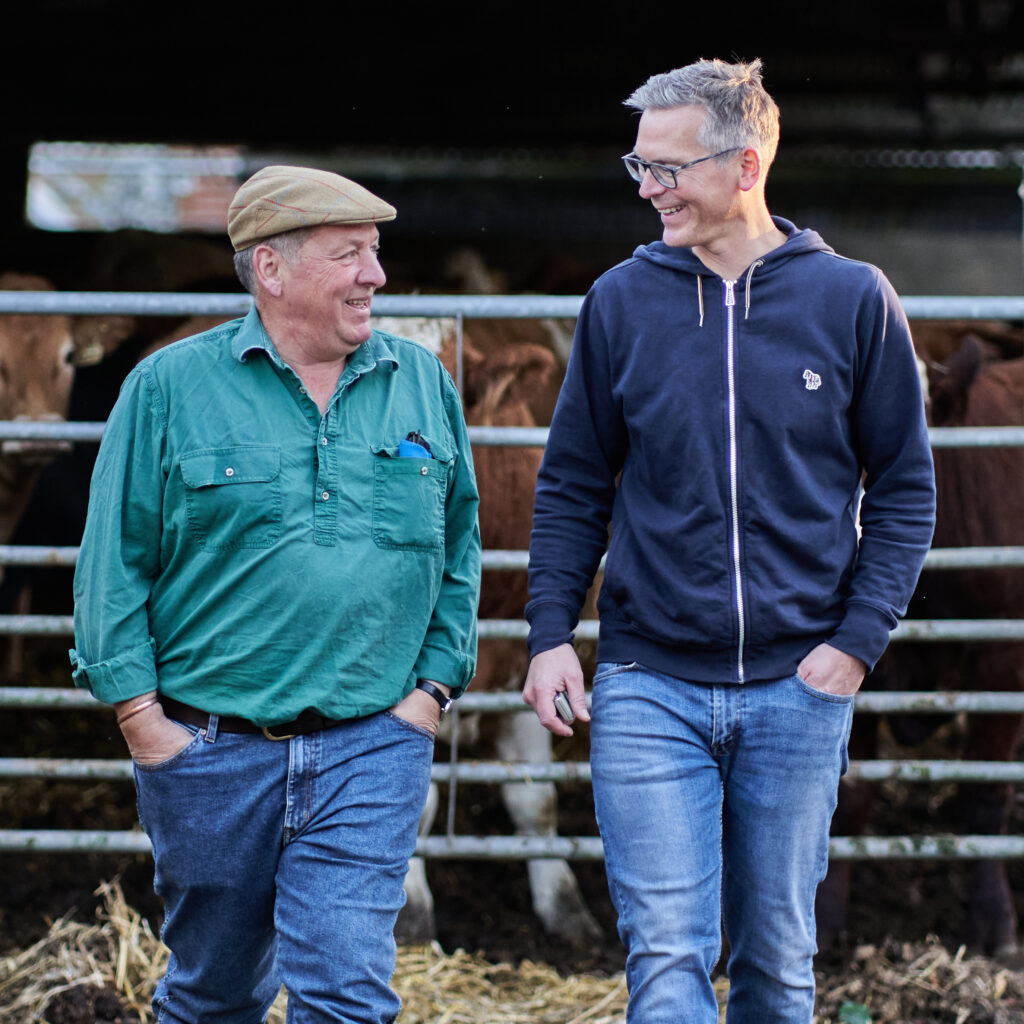British Beef in Crisis? A Look at the Challenges and Opportunities for UK Meat Lovers
The British beef industry is at a pivotal moment. Amid rising prices and declining cattle numbers, concerns about the future of homegrown beef are growing. However, while challenges exist, this is also an opportunity to reinforce the value of high-welfare British beef, a product with deep heritage and provenance. At Archer’s Butchers, with almost a century of experience in supplying the finest quality beef in Norfolk, we understand the importance of supporting British farmers.
So, is British beef in crisis? Or are we at a turning point where consumers can take action to ensure its sustainability?
Let’s explore the current state of the industry, why prices are rising, and why buying British beef remains the best choice.
The Current Position of British Beef Farming
According to the latest figures from The Agriculture and Horticultural Development Board (AHDB), using Department for Environment, Food and Rural Affairs (DEFRA) statistics, the UK’s cattle population is shrinking.
As of June 2024, the total UK cattle herd had fallen by 1.5% year-on-year to 9.41 million head.
The decline is particularly noticeable in the beef female breeding herd, which saw a 4.5% drop to 1.34 million head – the largest annual reduction in over two decades (AHDB).
This contraction in the national herd means fewer animals entering the supply chain, creating a knock-on effect that has serious implications for pricing and availability.
Additionally, prime cattle slaughter in 2024 reached 2.12 million head, a 4% increase from 2023.
However, projections indicate that numbers will fall by 6% in 2025, dropping to 1.99 million head. As a result, overall UK beef production is expected to decrease by 5%, reaching approximately 885,000 tonnes in 2025 (AHDB).
With a smaller national herd and fewer cattle being bred for beef production, it is clear that supply is under pressure.
This leads us to the next major concern: rising prices.
Why Are Beef Prices Rising?
In the past few months alone, beef prices have soared. Since November 2024, the price paid for cattle by reputable processors, has increased by around 15% adding a considerable amount to the price of a beef carcass.
Worryingly, prices are expected to continue to rise rise across 2025.
Several factors are driving these increases:
- Reduced Supply – As cattle numbers decline, the scarcity of British beef pushes up prices. Farmers are simply not producing enough cattle to meet demand.
- High Demand – British beef is sought after both at home and abroad. Strong demand from retail, catering, and export markets is putting pressure on available stock.
- Increased Costs – Farmers are facing higher feed, energy, and transportation costs, all of which contribute to rising beef prices.
- Labour Shortages – The UK’s agricultural sector continues to experience labour shortages, affecting meat processing and butchery.
- Global Market Trends – The UK’s reliance on imports to balance supply and demand means that global beef prices have a direct impact on British consumers.
The Reality of Beef Imports and Their Impact
To compensate for declining domestic supply, UK beef imports are set to increase by 12% in 2025. Ireland remains the primary exporter of beef to the UK, but global supply constraints could make imports more expensive. However, there are significant concerns regarding the sustainability and welfare standards of imported beef.
Animal Welfare Concerns
British beef is produced under some of the highest welfare standards in the world. Imported beef, however, does not always adhere to these same stringent regulations. Countries such as Brazil, Argentina, and the United States often operate under different farming practices, which may include lower welfare standards, increased use of growth hormones, and less humane slaughtering methods (Compassion in World Farming).
Environmental Impact
The carbon footprint of imported beef is another significant issue. The transport of beef across thousands of miles results in high greenhouse gas emissions. Additionally, deforestation in South America to create grazing land for cattle contributes heavily to climate change. In contrast, British cattle are often grass-fed on natural pastures, a practice that supports biodiversity and reduces carbon impact (WWF).
Food Security and Traceability
Buying British beef ensures greater traceability and food security. The UK has robust regulations on food safety and traceability, reducing the risk of contamination and fraudulent meat entering the supply chain. Imported beef, particularly from markets with less stringent regulations, can pose greater risks to consumers (Food Standards Agency).
Why Choosing High-Welfare British Beef Matters
Despite these challenges, the UK remains home to some of the world’s best beef. British farmers adhere to strict welfare and sustainability standards, ensuring that cattle are raised in humane conditions, fed high-quality diets, and bred using responsible farming practices.
When you buy British beef from trusted butchers like Archer’s, you are investing in:
- Heritage – British cattle farming has a long history, with breeds such as Aberdeen Angus and Hereford known for their exceptional flavour and texture.
- Provenance – Knowing where your beef comes from provides assurance of quality, traceability, and ethical farming practices.
- High-Welfare Standards – UK farmers follow rigorous animal welfare regulations, ensuring humane treatment and sustainable farming methods.
By choosing high-welfare British beef, consumers can enjoy premium quality while also supporting local farmers and the future of British agriculture.
A Balanced Perspective: Is There a Crisis?
It’s true that the British beef industry is under pressure. Cattle numbers are declining, production is falling, and prices are rising. However, this does not mean British beef is in crisis. Rather, it presents a crucial moment for consumers to make informed choices that support the industry.
By prioritising high-welfare, locally sourced beef, consumers can help:
- Sustain British farmers and rural communities
- Preserve the high standards of British beef production
- Ensure continued access to superior quality meat
At Archer’s Butchers, we have been committed to supplying the finest British beef for almost a century.
British Beef: Crisis or Opportunity for UK Meat Lovers?
Our Commitment to Quality: P O Almey & Sons
At Archer’s Butchers, we take immense pride in sourcing our beef from P O Almey & Sons, a trusted family-run farm at Tavistock Farm, Antingham, near North Walsham. The Almey family has been farming cattle for generations, ensuring a consistent supply of high-quality beef throughout the year.
Exceptional Cattle Breeds for Superior Beef
The cattle at Tavistock Farm are carefully selected to produce premium-quality beef. The Almey family primarily raises Simmental and Limousin cattle, both of which are renowned continental breeds famed for their lean, tender meat. These breeds are expertly crossed with traditional native breeds such as Hereford, Shorthorn, and Aberdeen Angus. These native breeds are particularly prized for their beautifully marbled meat, which enhances flavour and succulence.
Sustainable, Free-Range Farming Practices
P O Almey & Sons is committed to sustainable farming, ensuring that their cattle are raised in an environment that promotes high welfare standards. The cattle are free to roam and graze in expansive fields at a minimum ratio of one acre per animal. This allows them to develop naturally, feeding on a rich variety of natural grasses, wildflowers, and shrubs. The farm also provides the animals with access to a natural water source that runs through the fields, supporting a holistic and healthy upbringing.
By grazing on non-arable land, these cattle play a crucial role in fertilising otherwise unused farmland, enhancing biodiversity and maintaining a balanced ecosystem. This traditional approach to cattle farming has a significantly lower carbon footprint than intensive rearing systems, making it an environmentally responsible choice.
The Finishing Process: Enhancing Quality and Flavour
Once the cattle have reached maturity, typically between 20-24 months, they are carefully transitioned to a higher-calorie finishing ration. This finishing diet includes nutrient-rich vegetables such as potatoes and beet, ensuring that the meat develops the perfect balance of tenderness, texture, and flavour.
Why Choose P O Almey & Sons Beef?
- Heritage and Expertise – Generations of experience in cattle farming ensure superior beef quality.
- High-Welfare Standards – Cattle are free-range and reared on natural pastures with access to fresh water.
- Sustainable Farming – Grazing practices enhance biodiversity while maintaining low carbon emissions.
- Premium Breeds – A carefully curated mix of continental and native breeds ensures the finest meat quality.
- Locally Sourced – Supporting British farmers and reducing food miles for a fresher, more sustainable choice.
By choosing British beef from trusted farms like P O Almey & Sons, consumers not only enjoy exceptional meat but also contribute to the sustainability of British agriculture.
At Archer’s Butchers, we stand by our commitment to high-welfare, high-quality, and locally sourced beef that reflects our nation’s proud farming heritage.
We believe in the importance of heritage, provenance, and animal welfare, and we encourage our customers to choose British beef with confidence.
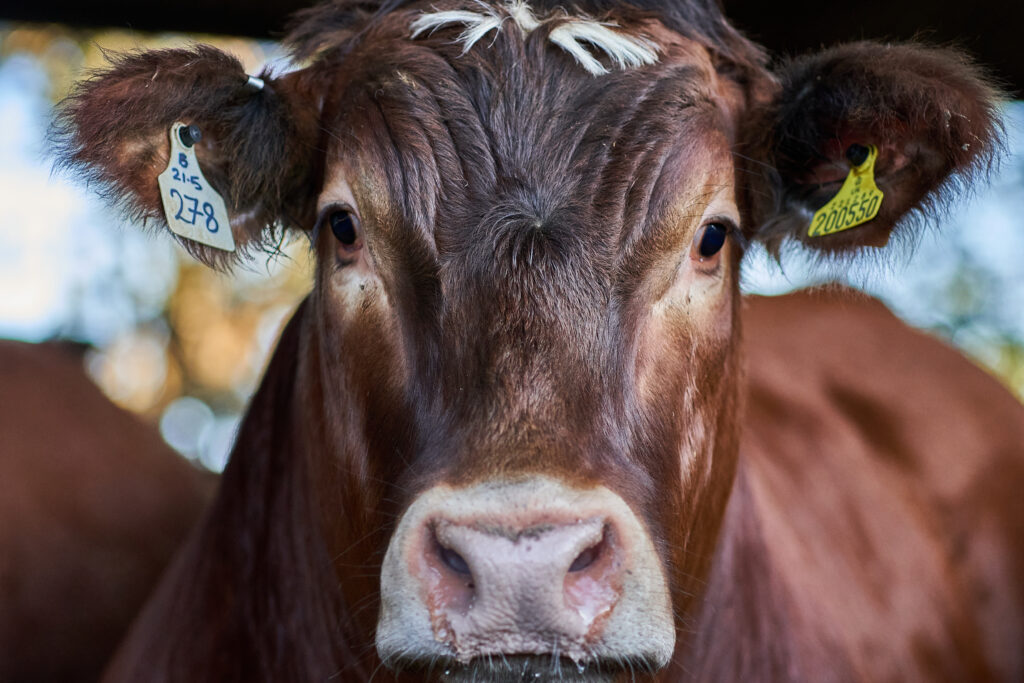
Final Thoughts
While the UK beef industry faces significant challenges, it is far from doomed. Instead, it is a sector in transition, requiring the support of consumers who value quality, welfare, and sustainability.
As prices rise, it may be tempting to seek cheaper alternatives, but investing in British beef is an investment in the future of our farming industry. By choosing high-welfare, locally sourced meat from trusted butchers, we can ensure that British beef remains at the heart of our tables for generations to come.
So, is British beef in crisis? The answer depends on our collective choices. Support local, eat high-welfare, and celebrate the heritage and provenance of British beef. The future of the industry is in our hands.

